This website uses cookies so that we can provide you with the best user experience possible. Cookie information is stored in your browser and performs functions such as recognising you when you return to our website and helping our team to understand which sections of the website you find most interesting and useful.
Friday 25 August 2017, 11:02 | By Chris Cooke
Beck confirms new album release date, shares new track
Artist News Releases

That Beck fella has confirmed that his new album ‘Colors’ – the follow up to 2014’s Grammy-winning long player ‘Morning Phase’ – will be released by Universal’s Capitol Records on 13 Oct. The release date confirmation comes as he shares another track from the new record called ‘Dear Life’.
In a recent interview with Rolling Stone, Beck said of his new material: “These are complex songs all trying to do two or three things at once. It’s not retro and not modern. To get everything to sit together so it doesn’t sound like a huge mess was quite an undertaking”.
Beck’s other big undertaking is a tour with U2, as he supports the band on their September dates, ahead of the release of his new record.
READ MORE ABOUT: Beck
Friday 25 August 2017, 11:01 | By Chris Cooke
First ever Heavy Music Awards presented
Artist News Awards
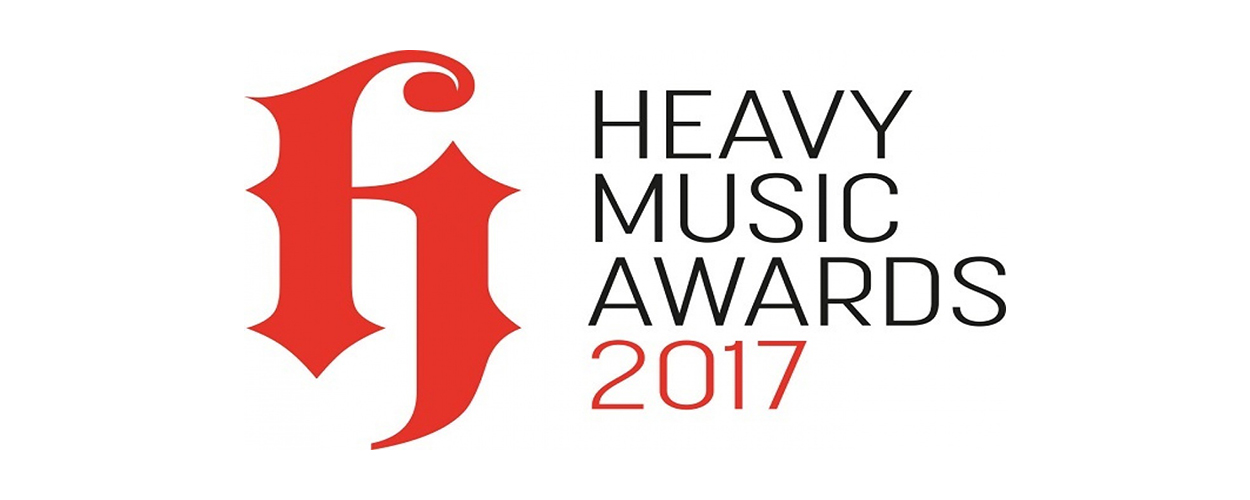
It was the first ever Heavy Music Awards last night. What are they? Awards. For music. That’s heavy. Obviously! Architects, Black Sabbath and Enter Shikari were among the winners at the public-voted awards bash.
For fans of full lists of award winners, here’s your special treat for today:
Best Album: Architects – All Our Gods Have Abandoned Us
Best UK Band: Black Sabbath
Best International Band: Gojira
Best Live Band: Enter Shikari
Best Breakthrough Band: I Prevail
Best Producer: Fredrik Nordström & Henrik Udd
Best Album Artwork: Ghost – Popestar (Zbigniew M Bielak)
Best Photographer: Ben Gibson
The H: Ashley Maile
Best Festival: Download Festival
Best Venue: Brixton Academy
READ MORE ABOUT: Heavy Music Awards
Friday 25 August 2017, 11:00 | By Chris Cooke
Beef Of The Week #369: Danish law enforcement v bad busking
And Finally Artist News Beef Of The Week

Some pop beefs are complex. They are involved. They consist of multiple chapters, a series of developments, lots of back and forth between the participating beefers and/or their publicity representatives and/or their attorneys.
And when we summarise them here in the all-important Beef Of The Week column, we have to employ all our skills to explain the many developments and the various statements in a suitably concise fashion. Though a substantial word court may still be required.
But this week’s Beef Of The Week is a nice simple one. It’s almost a one liner. In fact, we could have placed it in the One Liners slot. Except there isn’t a One Liners slot today. But there is a Beef Of The Week slot. Hence its inclusion here. This waffley over-long introduction, by the way, also explains the need for a waffley over-long introduction.
Anyway – the beef goes as follows: shit busker sings shit version of Oasis song ‘Wonderwall’; police tell him to fuck off and do some rehearsing; police issue damning statement. It’s possible I should throw an ‘allegedly’ into the mix here somewhere.
Though the damning statement bit is definitely true. It was police in Denmark who decided that a busker in the Danish city of Aalborg was delivering such a terrible rendition of the Oasis song that they should move him on to protect the sanity of all those within earshot.
“Just because you can play ‘Wonderwall’ does not mean you should”, the local police force subsequently posted on their website. Nice. According to NME, the police authority added: “The guitarist [was] loud, bad and noisy. He did not sound like Liam Gallagher. A patrol talked to the singer and sent him home to practice”.
We don’t know if the busker took the police remarks as constructive criticism, or if he still reckons his version of ‘Wonderwall’ is actually pretty good. Meaning this could be a one-way beef or a two-way beef, which is an important distinction to make when you’ve explained the whole Beef Of The Week story in three paragraphs but want to make your weekly Beef column look longer.
READ MORE ABOUT: Nordjyllands Police
Friday 25 August 2017, 10:45 | By Paul Vig
Vigsy’s Club Tip: Notting Hill Carnival 2017
Club Tip CMU Approved

Yep, it’s that time of year again. Time for the massive West London street party that is the Notting Hill Carnival, taking place this Sunday and Bank Holiday Monday.
As always, there are multiple elements to London’s big Carnival. There’s the traditional procession of floats playing calypso, soca and reggae from the Caribbean. And alongside the music, you will find lots of hugely detailed costumes, all of it months in the making. The taste of the Caribbean is all round too, with jerk chicken and curried goat on the menu, or saltfish and ackee with rice and peas.
But Carnival also forays into jungle, ragga, hip hop, house and broken beat – giving it a real UK slant – via the numerous soundsystems erected around Notting Hill over the weekend. They’re certainly worth hunting down, though planning ahead as to which sound systems you’re going to sample is definitely worthwhile.
This year my picks of the 37 officially listed soundsystems are as follows…
1. Latin Rave Street Jam for Latin flavours from DJ Sylvester.
2. King Tubbys for some proper reggae.
3. Saxon Sound, where reggae star Tippa Irie cut his teeth.
4. GT Flex crew taking us to pastures UKG.
5. Sir Lloyd, which sees Shy FX take control of the decks no less…wow.
To get the most from Carnival, have Time Out’s map with you. Remember, it can get very crowded, even more so on the Monday – so keep an eye on friends and maybe have a plan for regrouping, because phone networks can slow down and/or fall over once Carnival is at its peak. And the cash machines run out of cash too – be prepared!
There are also the pre and post Carnival parties this weekend that are worth checking out. CMU’s tips in that regard are as follows…
• Friday: the Garage Carnival Warm Up at Egg with Luck and Neat et al.
• Saturday: Mala, Jamie Rodigan and Lady Leshurr at KOKO for a pre-Carnival bash.
• Saturday and Sunday: Big Chill Bar on Brick Lane focusing on reggae, with free entry on both nights.
• Sunday: Metalheadz Carnival After Party at Phonox, with Goldie, Storm and Randall so far confirmed, but more promised.
• Sunday: CoOp heads down to Hoxton for a welcome return with IG Culture and Alex Phountzi (though it only runs 7pm-12pm).
• Sunday: Boiler Room takes on Deviation and heads down to The Loft for their post-Carnival bash.
• Sunday: Norman Jay takes his Good Times party east to Mick’s Garage, with Femi Fem and Manasseh.
• Sunday: Jungle Mania pays homage to Carnival at The Coronet with a huge line up of big hitters including JJ Frost, Dillinja and Kenny Ken .
All in all, it’s a great line up for this too often underrated London event. Let’s just cross fingers that the sun shines in West London this weekend. And if you’re one of those Londoners who has never quite made it to this big bash, then do it, trust me, you’ll love it. Viva Carnival!
READ MORE ABOUT: Notting Hill Carnival
Friday 25 August 2017, 09:00 | By Chris Cooke
CMU Digest 25.08.17: Warner Music, YouTube, The Pirate Bay, ReDigi, AIF, Beatbox
CMU Digest

The key stories from the last seven days in the music business…
Warner Music announced it had finally got round to inking a new multi-year licensing deal with Spotify, meaning the market-leading premium streaming platform now has new licences from all three majors and indie label-repping Merlin. The new deals with the labels needed to be in place before Spotify could list on the New York Stock Exchange. [READ MORE]
Various music industry representatives responded to a blog post by YouTube music chief Lyor Cohen. The record industry veteran turned YouTube exec said that the music community should be excited about the potential of his current employer’s subscription service and ad sales growth, and should be obsessing less about reforming safe harbour rules. Reps for the RIAA and A2IM in the US, and the BPI in the UK, questioned Cohen’s optimism about YouTube’s future revenue potential, and insisted safe harbour reform was incredibly important. [READ MORE]
Two of the founders of The Pirate Bay were ordered to pay 405,000 euros in damages to the record industry in the conclusion of a long-running copyright case in Finland that began in 2011. Fredrik Neij and Gottfrid Svartholm have long insisted that they no longer have any involvement in the infamous file-sharing site. Neither man defended himself in the case and it seems unlikely they’ll be paying any damages any time soon, given they still haven’t paid the damages awarded in the big Swedish Pirate Bay case in 2009. [READ MORE]
The copyright implications of reselling MP3s were back in court this week as the ReDigi case reached appeal judges. US-based ReDigi operated an MP3 resale market. In 2013, Capitol Records successfully argued in court that facilitating the transfer of MP3s in that way – without the permission of relevant copyright owners – constituted copyright infringement. ReDigi, which went bankrupt last year, is appealing the original ruling against it, arguing that the first sale doctrine that allows the resale of CDs without the copyright owner’s approval should also apply to digital recordings. [READ MORE]
The Association Of Independent Festivals asked the UK competition regulator to investigate Live Nation’s position in the British live market. The Competition & Markets Authority is already looking into Live Nation’s acquisition of the Isle Of Wight Festival. AIF reckons it should widen the scope of that investigation to look at the live giant’s increased dominance in the wider festivals market. [READ MORE]
A spin off dispute relating to the Eminem sound-a-like case in New Zealand officially went legal. Eminem sued New Zealand’s National Party when they used a track that sounded very like ‘Lose Yourself’ in a campaign ad. The politicians claim they properly licensed the ad track from a production music company in Australia. That company, Beatbox, is now suing a US-based production music library, where the Eminem-like music originated, reckoning its business partner Stateside should cover the legal costs it has incurred in relation to the Eminem/National Party legal battle. [READ MORE]
The big deals from the last seven days in the music business…
• DEAG and Kilimanjaro took a stake in the Flying Music Group [INFO]
• Sony Music signed up with Dubset [INFO]
• Skepta allied with Nike on a new sneaker design [INFO]
• Dot Blockchain allied with the Hyperledger Sawtooth framework [INFO]
• Box Plus signed up with smart TV platform Roku [INFO]
• Just Isn’t Music signed Ghostpoet [INFO]
• Warner/Chappell re-signed Xenomania’s Miranda Cooper [INFO]
• East West signed Sheridan Smith [INFO]
READ MORE ABOUT: Association Of Independent Festivals | Beatbox | Competition And Markets Authority | Eminem | Live Nation | Lyor Cohen | ReDigi | Spotify | The Pirate Bay | Warner Music | YouTube
Thursday 24 August 2017, 12:07 | By Chris Cooke
Pirate Bay founders ordered to pay 405,000 euros to the labels
Business News Digital Legal

Two of the founders of The Pirate Bay have been ordered to pay the major record companies 405,000 euros in damages for the copyright infringement the infamous piracy hub facilitates. This despite all three of the site’s founders having insisted for years now that they no longer have any involvement in running the file-sharing service.
The Pirate Bay has been sued numerous times in numerous countries over the years, of course, with the site often not defending itself and usually losing. Though the biggest legal action to date remains the combined criminal and civil action against founders Fredrik Neij, Gottfrid Svartholm and Peter Sunde in the Swedish courts in 2009. They lost the case and were ordered to serve jail term and pay damages to the record industry. All three men did ultimately spend some time in prison, though no damages were ever paid.
The three men were also sued in Finland in 2011 in an action filed by the International Federation Of The Phonographic Industry and local anti-piracy agency CIAPC. That case has been slowly working its way through the system ever since. Sunde was found liable for copyright infringement last year, while similar rulings were made about Neij and Svartholm in the Helsinki District Court this week.
According to Torrentfreak, the Finnish court ordered the two men to stop the copyright infringing operations of The Pirate Bay, and to pay the majors 405,000 euros. Neither man defended himself, and it seems unlikely the labels will ever see their money.
When the court in Helsinki ruled against Sunde last year, he hit out at the judgement, insisting he wasn’t aware of the action until he read media reports on the judgement and, anyway, he no longer has any involvement in The Pirate Bay so has no way of stopping its operations. Sunde also threatened to sue the record labels for defamation, on the basis they pursued legal action against him even when they knew he was no longer involved in the Bay.
Despite all the various lawsuits, The Pirate Bay continues to operate, of course, even though internet service providers have been ordered to try and block access to the site in some countries. After Neij, Svartholm and Sunde had been targeted personally with both criminal and civil actions in relation to the piracy site, the people who have subsequently taken over running the operation do so anonymously.
READ MORE ABOUT: The Pirate Bay
Thursday 24 August 2017, 12:05 | By Chris Cooke
Just Isn’t Music signs Ghostpoet
Business News Deals Labels & Publishers

Ninja Tune-allied music publisher Just Isn’t Music has signed an exclusive publishing deal with Ghostpoet – aka Obaro Ejimiwe – whose fourth album ‘Dark Days + Canapés’ came out last week.
Confirming the deal, Just Isn’t Music’s Martin Dobson told reporters: “Ninja Tune and Just Isn’t Music have been fans of Ghostpoet for years now and finally we get to officially work with him on the publishing side of things”.
Dobson adds that: “Obaro’s songwriting has always been so intensely original and uniquely British, yet ‘Dark Day + Canapés’ feels like his most inspired work to date. Even when some of those inspirations come from the darker territory the world is currently experiencing. We can’t wait to introduce these songs to the wider world and have others enjoy them as much as we do.”
Ejimiwe himself added: “After admiring them from afar for a while, it’s nice to now be part of the JIM publishing family. I’m very much looking forward to the adventures ahead”.
READ MORE ABOUT: Ghostpoet | Just Isn't Music
Thursday 24 August 2017, 12:04 | By Chris Cooke
Warner/Chappell re-signs Xenomania’s Miranda Cooper
Business News Deals Labels & Publishers
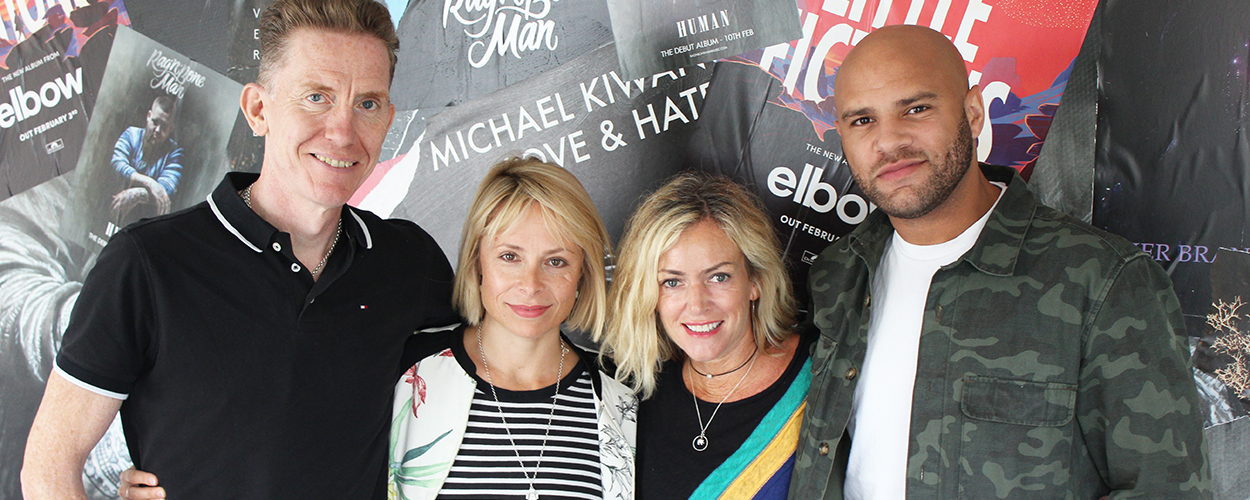
Warner/Chappell has renewed its worldwide deal with songwriter Miranda Cooper who has written numerous hits over the years for the likes of Girls Aloud, Kylie Minogue, Pet Shop Boys, Sugababes and The Saturdays, usually as part of pop production outfit Xenomania.
Confirming that the publisher would continue to rep Cooper’s song rights, Warner/Chappell UK MD Mike Smith told reporters: “It’s an honour and a privilege to have Miranda re-sign with us here at Warner/Chappell. She is a legend who has worked with some of the greatest talents in the pop world, writing songs that have stood the test of time to become true classics. Everyone here is looking forward to continuing to support Miranda as she enters the next stage of her incredible career”.
Cooper also confirmed the new deal and her interest in collaborating with up and coming writers, stating: “I’m so pleased to be able to continue working with Mike and the team at Warner/Chappell. They have some of the most talented emerging songwriters in the UK on their books, and the scope for collaborations is extremely exciting”.
READ MORE ABOUT: Miranda Cooper | Warner Chappell
Thursday 24 August 2017, 11:59 | By Chris Cooke
East West signs Sheridan Smith, album due later this year
Business News Deals Labels & Publishers

Warner Music label East West has signed actress Sheridan Smith to a record deal, with plans to bring out an album later this year. Although best known for her prolific TV career, Smith has performed in a number of musicals on stage, as well as portraying Cilla Black in the 2014 ITV mini-series about Black’s early career as a singer.
Confirming the record deal, Smith said: “It has been an ambition since I was a child to record my own album so I’m incredibly excited to be recording some of my favourite songs and working alongside an amazing team at East West Records”.
Speaking for the Warner label, East West President Dan Chalmers said “We’re very excited to work with Sheridan. I’ve admired her for many years and she has an incredible voice. When I first saw her performing I knew that I was in the presence of real talent – she’s up there alongside the all-time greats. I have no doubt that Sheridan will have a long and exciting career because she’s genuine and knows how to connect with an audience, her fans love her and she’s one of the country’s finest all-round entertainers”.
READ MORE ABOUT: East West | Sheridan Smith | Warner Music
Thursday 24 August 2017, 11:51 | By Chris Cooke
Skepta’s made a shoe
Brands & Merch Business News Deals

If you’re one of those people who has always thought that, while it’s fun consuming Skepta via your ears, it would be much more fun if you could consume Skepta on your feet, well good news!
Next month Nike will start selling a sneaker designed by the grime star. It’s his second tie-up with the trainer maker, though last time the shoes he designed were one-offs not available for us all to buy. The new Skepta design for the Nike Air Max range will be available for all on 2 Sep. What a time to be alive!
Nike says the Skepta shoe is “inspired by his love of Nike Air and his home-away-from-London, Morocco. A trip to Essaouira, a coastal city frequented by rock stars during the 60s, provided further colours, sounds and stories that would shape the Air Max 97 Sk collaboration”. So now you know. That the new shoe is called Air Max 97 Sk at least.
Writes Skepta himself on Nike’s website: “I am blessed to have been able to travel the world doing what I do. After touring so much, I was looking for some peace. I found Morocco, and it was perfect. Everything I wanted to feel about peace, I found it there. I like the architecture, the pastel colours, the taxis, the way that you could just go into a small little souq, open a door and it brings you into a big, massive, beautiful new world that you never would have expected”.
“How did that experience subsequently manifest itself as a shoe?” you might wonder. It’s all about the colour palette, obviously! “When designing the Air Max 97 Sk, we took the colour palette of Morocco into consideration”, muses Skepta. But Morocco wasn’t the only thing that inspired the new Nike shoe. No, Sketpa was also inspired by Nike shoes.
“The palette of the 1999 Air Tuned Max” was also a consideration, he says, adding: “That was the first shoe I ever saved up money to buy, so I wanted to bring its magic to the 97 – the magic that made me first love Air Max when I saw it as a child”.
READ MORE ABOUT: Nike | Skepta
Thursday 24 August 2017, 11:49 | By Chris Cooke
Box Plus announces app upgrade and Roku alliance
Business News Deals Media

Music TV operator Box Plus has announced an imminent revamp of its app across mobile devices, smart TV systems and gaming consoles. The new version of the app will launch first on smart-TV platform Roku, where the music TV network is appearing for the first time. The Box Plus app provides access to the company’s live TV channels, plus on-demand access to programmes, charts and curated playlists.
Confirming the new alliance with Roku as part of the app upgrade, Box Plus Network’s Digital Director Ben Williams said: “We’re delighted to partner with Roku to enable our dedicated viewers to stream our Box Plus content directly onto their TVs”.
He added: “Roku has an incredible roster of channels available and we are hugely excited to be included within this. Streaming is one of the most popular methods for our audience to enjoy our content. So to offer our brilliant programmes on the Roku streaming platform shows our dedication to ensuring the most enjoyable and user-friendly experience for our viewers”.
Meanwhile the VP Of Content Acquisition at Roku, Ed Lee, added: “We are THRILLED to welcome The Box Plus Network to our streaming platform. Our audience has a strong passion for music so to be able to offer some of the greatest and most popular music television channels will be exciting news for our customers”.
READ MORE ABOUT: Box Plus Network | Roku
Thursday 24 August 2017, 11:42 | By Chris Cooke
Showtime secures rights to Prince’s ‘Sign O The Times’ film
Business News Media
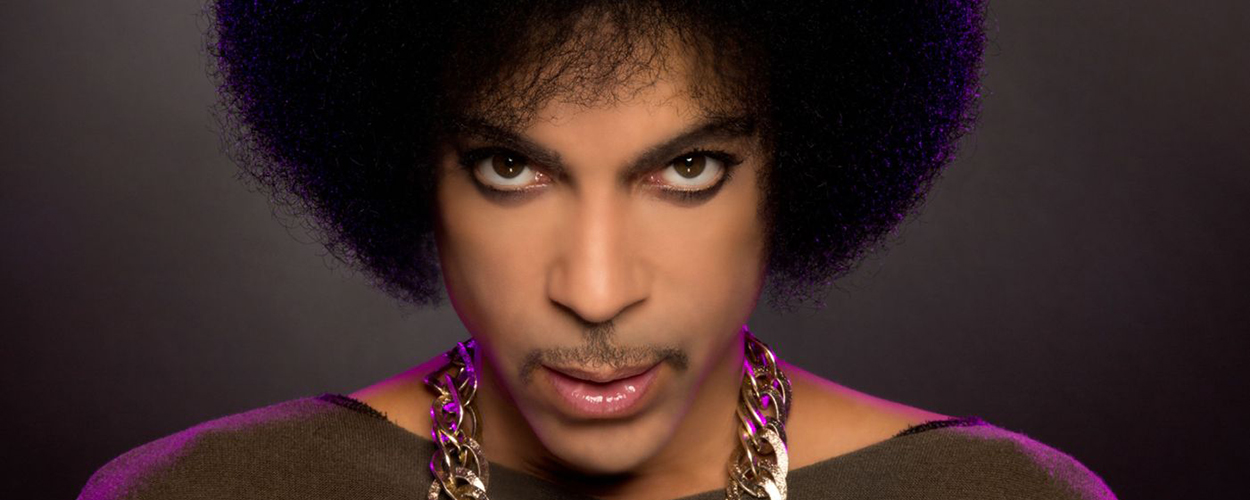
US TV network Showtime has announced it has acquired the rights to air the 1987 Prince concert film ‘Sign O The Times’, which was originally put out alongside the album of the same name.
The film, featuring footage from shows in the Netherlands and Belgium and performances at Prince’s Paisley Park Studios, enjoyed most success via its video release. Although it has subsequently been released on DVD in some markets, in the US it hasn’t been officially available since a 1991 reissue on VHS.
Showtime plans to start airing the film from 16 Sep. It’s not known if there are plans to do similar deals with telly services elsewhere in the world.
READ MORE ABOUT: Prince | Showtime
Thursday 24 August 2017, 11:38 | By Chris Cooke
Corey Taylor not so excited about Kid Rock for US Senate
And Finally Artist News

Corey Taylor off of Slipknot isn’t planning on backing Kid Rock’s bid to become a US senator. But not because he has anything against Kid Rock per se, but because he reckons the Donald Trump presidency is proving that – as much as we like to disparage politicians – replacing them with people who know nothing about politics or government isn’t an especially good route to take.
As previously reported, Trump supporting Kid Rock is considering standing to represent Michigan in the US Senate, with the next round of elections taking place next year. He would seek to represent the Republican Party, and one organisation that provides funding to Republican candidates recently said “he’s done a lot in his home state philanthropically, he’s a pretty smart guy, he thinks about policy, and he’s a shrewd businessman – if you’re watching, Kid, we hope you run”.
Taylor was asked what he thought about his fellow musician’s political ambitions by Larry King. The Slipknot and Stone Sour frontman mused thus: “I’ve never met him. I’ve heard he’s really, really cool, but I think the worst thing that people can do is assume that you can fill a role that you have no experience in. I mean, we’re kinda seeing that with the President right now. So there you go”.
There you go indeed.
READ MORE ABOUT: Corey Taylor | Kid Rock | Slipknot
Wednesday 23 August 2017, 13:55 | By Chris Cooke
The copyright status of MP3 resale back in court via the ReDigi appeal
Business News Digital Labels & Publishers Legal ReDigi Timeline

The debate over whether or not it is possible to move a digital file from one device to another without that transfer constituting a copy – and therefore being controlled by copyright – was back in the American courts yesterday as the long-running dispute between Capitol Records and tech firm ReDigi reached the Second Circuit court of appeal.
As previously reported, ReDigi ran a marketplace where people could resell digital music files they had legitimately acquired to third parties. It was a digital version of the second hand record shop, with ReDigi arguing that the principle in copyright law that says that consumers can resell physical records without the copyright owner’s permission – what is called the first sale doctrine in the US – should apply to digital music files too.
The record industry disagreed. The labels pointed out that when you resell a CD no copying is involved. Whereas when an MP3 moves from one device to another, by definition, a copy takes place. And even if you can ensure that the original copy of the file is then deleted from the first device, the ‘reproduction control’ of the copyright has still been exploited, and that requires a licence from the copyright owner.
When Capitol – then still an EMI subsidiary – sued the tech start-up for copyright infringement in 2012, ReDigi – which always insisted that its technology ensured that there was only ever one version of a resold digital file in existence at any one time – presented various arguments to counter the label’s claims. In particular, it got technical about why its file transfer system didn’t constitute copying, while also continuing to insist that the aforementioned first sale doctrine should apply to digital.
In 2013, a judge ruled in favour of Capitol – by then a Universal label – stating that: “ReDigi facilitates and profits from the sale of copyrighted commercial recordings, transferred in their entirety, with a likely detrimental impact on the primary market for these goods. It is beside the point that the original phonorecord no longer exists. It matters only that a new phonorecord has been created”.
ReDigi appealed and, despite the company filing for bankruptcy last year, that appeal process continues, hence the hearing in the Second Circuit this week.
According to Law 360, yesterday Robert C Welsh, speaking for ReDigi, re-presented his client’s core arguments, while citing a little case law that he reckoned backed up his interpretation of American copyright. He then argued that the lower court never really determined how ReDigi’s technology actually worked, and therefore wasn’t in a position to rule on whether or not a reproduction took place when files were transferred via the platform.
Welsh: “The real issue in this case is does ReDigi’s technology cause a reproduction of Capitol’s copyrighted work to be created even for a fraction of an instant of a second. And the answer, based on the uncontroverted evidence presented by ReDigi, is that ReDigi’s technology does not – it never does – cause the creation of second instance a second copy of the copyrighted sound recording”.
Speaking for Capitol, Richard S Mandel insisted that transferring a digital file from one device to another had to involve some copying. “If you embody a copyrighted work in a new material object”, he told the appeal judges, “by definition you have reproduced the copyrighted work and violated the reproduction right”.
The judges asked an assortment of technical as well as legal questions during the session, and we now await their ruling on the appeal. Given ReDigi’s bankruptcy – not to mention the shift of the digital music market away from downloads over to streaming – it’s not clear quite what a ruling in the tech firm’s favour would mean in terms of its business model. Though either way the judgement should set an important precedent in US copyright law.
READ MORE ABOUT: ReDigi | Universal Music
Wednesday 23 August 2017, 13:51 | By Chris Cooke
Sony Music signs up with Dubset
Business News Deals Labels & Publishers

Dubset, the company whose technology identifies what songs and tracks appear in DJ mixes, with the aim of then licensing each component of each mix so that they can be legitimately distributed via streaming platforms, has announced a deal with Sony Music.
Dubset last year announced alliances with both Spotify and Apple Music, which are keen to carry copyright cleared mixes and remixes on their respective streaming platforms. It has also been liaising with potential label and publisher partners which see the benefit of their tracks and songs featuring in streamed mixes, where royalties have to be shared between various rights owners, but being in the mix can get music to new audiences.
Sony Music is the first major record company to sign up with Dubset. Through the deal, the major will now have access to the tech firm’s MixBANK Rights Management Platform and Cross Clearance Network, via which it can manage any tracks it controls that feature in DJ mixes being distributed by the Dubset company.
“This is a watershed moment for Dubset”, reckons the firm’s CEO Stephen White, who adds that the Sony alliance “demonstrates how critical the MixBANK tool and programs are proving to be with rights holders”.
Adds White: “Hundreds of millions of music fans are streaming DJ and remix content, and labels, publishers, and performance societies need robust solutions for managing the use of their catalogues within this massive category of under-monetised music. We are honoured that Sony Music has selected Dubset to help identify and unlock the value in these uses of their catalogue”.
But what does Sony Music Entertainment SVP Digital Partner Development Andre Stapleton think about the deal? That’s what you want to know isn’t it? Well, people, we are here to tell you just that. “There is a large global audience for DJ sets and remixes”, notes he, “and we think this agreement will benefit premium music subscribers by bringing more of that content into the product mix for electronic and dance fans”.
He adds: “We have worked closely with Dubset on a deal that not only protects our artists, but also provides us with the tools to harness new revenues for them, while amplifying the popularity of the original master recordings at the same time”.
READ MORE ABOUT: Dubset | Sony Music
Wednesday 23 August 2017, 13:49 | By Chris Cooke
Dot Blockchain allies with Linux Foundation’s Hyperledger Sawtooth framework
Business News Deals Digital Labels & Publishers

The Dot Blockchain project – which seeks to address the music industry’s multifarious music data issues via a new blockchain-distributed rights registry – has announced that it has selected the Linux Foundation’s Hyperledger Sawtooth as its blockchain – or ‘distributed ledger’ if you prefer – of choice.
The music data initiative says it has selected the Hyperledger Sawtooth framework to distribute its registry because of a specific mechanism it offers called Proof Of Elapsed Time, which will “enhance the security and privacy of the content rights registry”.
Says Dot Blockchain boss Benji Rogers: “Hyperledger Sawtooth will enable us to scale rapidly and customise transaction processors specifically for ingesting rights data. We look forward to delivering a strong and lasting solution, anchored on a sophisticated and secure blockchain foundation, for the music and media industries with Intel”.
Ah yes, Intel. Sawtooth was contributed to the wider Hyperledger open-source blockchain project by Intel, and the VP of that firm’s Software & Services Group, Rick Echevarria, welcomed Dot Blockchain’s announcement.
He said: “Hyperledger Sawtooth, utilising Intel security technologies, is able to provide enhanced privacy and security for blockchain transactions. dotBC’s blockchain initiative is an example of how blockchains can provide and meet the transparency and visibility requirements of the music and media industry”.
READ MORE ABOUT: Dot Blockchain | Hyperledger Sawtooth | Intel
Wednesday 23 August 2017, 13:46 | By Chris Cooke
The AEG/MSG venue bookings war maybe over
Business News Live Business

The pointless but slightly amusing venue bookings spat between the major players in live music Stateside – which spilled over into London town – could be over, and not just because one of the participants went and had a cry in front of the UK competition regulator.
As previously reported, it recently emerged that live giant AEG was linking bookings at its Staples Center venue in LA to the O2 Arena in London, so that you were more likely to get access to the latter if you played the former. Which means that artists wanting to take to the O2 Arena stage in the UK would be advised to choose the Staples Center over rival LA venue The Forum, which is operated by MSG Entertainment.
But AEG insisted that it had only instigated that policy because MSG Entertainment had been allegedly telling agents that if artists wanted to play its prestigious Madison Square Garden venue in New York, they’d better pick The Forum when playing in LA.
Live Nation – which runs venues, but also promotes shows in both AEG and MSG buildings – then got involved in the spat by criticising AEG’s policy of linking Staples Center and O2 Arena bookings.
AEG promptly hit back by asking why Live Nation hadn’t been so vocal about MSG Entertainment’s initial linking of Madison Square Garden and The Forum, before noting that both those venues had alliances with Live Nation’s Ticketmaster. AEG then had a rant about empire-building Live Nation having no grounds for accusing anyone else in live music of anti-competitive behaviour.
So that was all fun. However, according to Billboard, the spat could now be put on hold. First Irving Azoff, who is in business with MSG, insisted that there is no “mandated booking link” between the firm’s New York and LA venues. To which AEG said that – providing it saw MSG actually make good on that commitment – it would be willing to stop linking bookings at its London and LA arenas.
AEG told Billboard: “We have always been staunch advocates of artists having the freedom to play the venues they want to play. That choice was taken away when MSG, supported by others, implemented their restrictive practices … but we have been very clear all along – if [MSG end those practices], AEG will consider reverting to its previous long-standing position that its buildings are open to all artists”.
To which Azoff responded that MSG “are THRILLED that AEG has listened to the artists and is going to adopt the same booking policy as MSG. For the record, and at the risk of being redundant: MSG and The Forum are open buildings. We said it and we mean it. Just ask the artists like Katy Perry who played MSG and Staples. So, that settles the matter: AEG and MSG have open buildings”.
And hurrah for that. Meanwhile, it turns out Live Nation formally complained about AEG’s Staples/O2 linking thing to the UK’s Competition & Markets Authority.
AEG confirmed that it had been approached by the competition regulator, stating that: “[The CMA] has requested that AEG provide information regarding our booking practices, which AEG will of course provide. We believe our responses will clarify some questions recently brought before them and will be sufficient to allow all parties to move on”.
If AEG does now change its bookings policy on the back of Azoff’s firm commitment to Billboard about MSG’s policies, then maybe the CMA can put investigating Live Nation’s complaint on hold. Giving it more time to investigate the Association Of Independent Festival’s previously reported CMA complaint about Live Nation. Fun fun.
READ MORE ABOUT: AEG | Competition And Markets Authority | Live Nation | Madison Square Garden Company
Wednesday 23 August 2017, 13:44 | By Chris Cooke
DHP Family to open new venue in Birmingham
Business News Live Business

Live music firm DHP Family has announced plans to launch a new music venue in Birmingham within a building it has just acquired on the city’s John Bright Street. Specifics about the new music space are still being confirmed, but it will incorporate a bar and café in addition to its live music and club night programme.
DHP Family boss George Akins said yesterday: “Birmingham is the UK’s second city, and has a rich musical heritage – but the city centre has lacked a characterful and creative venue for a long time. We believe with the revitalisation of the area around New Street Station that the time is right to create a place that the music fans of Birmingham will welcome.”
Noting its existing venue operations elsewhere in the UK, in Nottingham, London and Bristol, DHP’s Director Of Promotions, Anton Lockwood, said: “We plan to use the skills and knowledge we’ve gained from award winning venues like Rock City, Oslo, Thekla and Rescue Rooms to deliver something exciting that echoes the DHP values and standards, but is also a unique experience to Birmingham”.
He added: “As part of this we will increase our focus on Birmingham as promoters, and will be investing in people and marketing in this key strategic region for us”.
READ MORE ABOUT: DHP Family
Wednesday 23 August 2017, 13:41 | By Chris Cooke
A2IM adds to stack of responses to Lyor Cohen’s ‘YouTube is great’ blog
Business News Digital Labels & Publishers
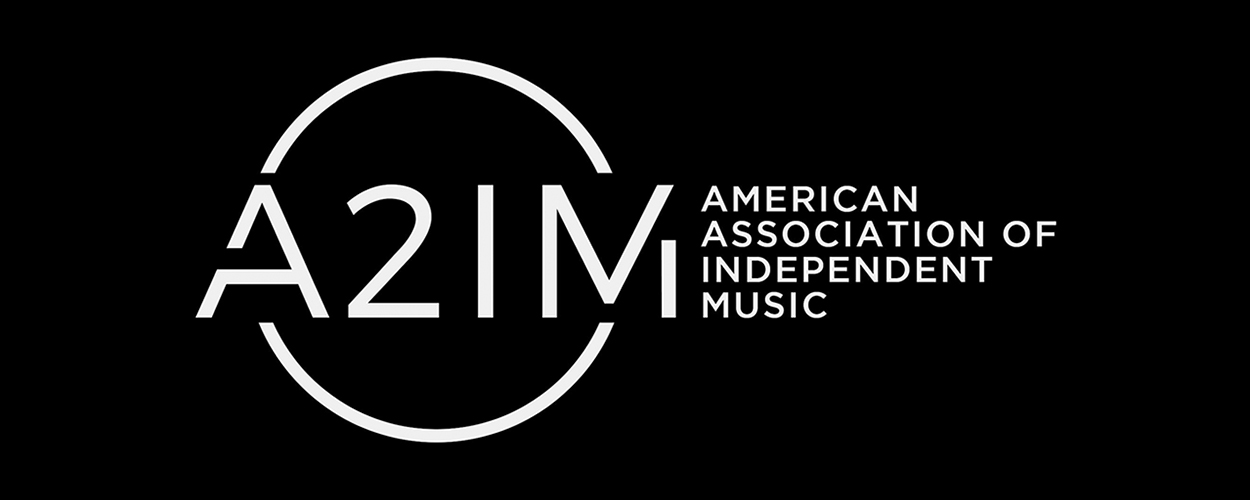
Have you written your response to Lyor Cohen’s blog post yet? Well, have you? You did know that was your homework for last weekend, right? It’s official, everyone in the music industry is obliged to respond to Cohen’s blog post. You know, the blog post that explained why YouTube is brilliant. And why YouTube is the music industry’s best bud. And why the music industry should shut the fuck up about safe harbours.
As previously reported, record industry veteran and now YouTube music chief Cohen defended his current employer’s music operations last week. The blog post came as record companies and music publishers continue to publicly and loudly criticise YouTube which, they argue, exploits the copyright safe harbour to force music rights owners into unfairly preferential deals. The music community, of course, wants copyright law rewritten so that YouTube is no longer protected by the safe harbour.
The bosses of the Recording Industry Association Of America and UK label trade group BPIhave both already responded to Cohen, disputing his figures, listing the music community’s various YouTube moans, and insisting that safe harbour reform – dubbed a “distraction” by Cohen – is, in fact, very important indeed.
Now Richard James Burgess of the American Association Of Independent Music has also responded. Nodding toward the RIAA and BPI responses, he basically shouts, “yeah, everything they said”.
Addressing Cohen directly, the A2IM boss writes: “Many of us hope that you will be able to change the culture at YouTube to become more artist friendly and transparent. We understand that it takes time to shift corporate culture, especially one as established as Google’s. [But] unfortunately, there are some entrenched alternative facts that are repeatedly regurgitated by YouTube and need to be corrected”.
Those alternative facts, says Burgess, include YouTube comparing itself to Spotify’s free streams. But Spotify only streams music provided by the labels – Burgess writes – and pays royalties on every single play. YouTube allows anyone to upload tracks – labels must login and remove them if they don’t want them to be there – plus the Google platform usually only pays rights owners when advertising rolls alongside their content.
Joining the RIAA and BPI in questioning Cohen’s claims that YouTube pays $3 per 1000 streams in the US, Burgess says that – while it is possible “some carefully selected YouTube streams” have paid out that amount – “no information we have seen indicates a rate even close to that”. And, anyway, information from A2IM’s members suggests that two out of three music video streams on YouTube worldwide are entirely unmonetised.
Dealing with YouTube’s claims that its Content ID system means labels can easily manage their recordings on the video platform, Burgess writes: “Content ID may be technologically capable of tracking unauthorised usage but, if so, it is not being applied adequately. We have brought this to YouTube’s attention repeatedly and the response is always a robotic, ‘Content ID is 99.5% effective'”. The indie labels, it seems, do not concur.
Elsewhere Burgess deals with Cohen’s optimism about YouTube’s shift to subscriptions via its Red service, questioning how compelling that paid-for option really is when so much free content is so readily available on the video site.
And, as for the promo benefit for artists on being on the YouTubes, Burgess says: “The attraction of fame is exactly how many artists get enticed into unsustainable situations. For some, fame may be a stepping stone to fortune. Nevertheless, artists, whose music is used, deserve to make a living commensurate with the level of usage. They should not need to become household names to do so”
Concluding, Burgess writes: “In closing, and reflecting on your closing comments about ‘bringing artists and fans together to make magic happen’, this is undeniably something you have done many times. What we also need to ensure is that – along with the magic – artists, songwriters, and the businesses that support them can get their fair share of monies generated by their creativity. And it is ultimately our responsibility to do everything we can to generate the most money possible for those creators”.
READ MORE ABOUT: A2IM | Lyor Cohen | Richard James Burgess | YouTube
Wednesday 23 August 2017, 13:39 | By Chris Cooke
LCD Soundsystem do the VR thing for new video
Artist News Releases

LCD Soundsystem have gone all interactive with the video for new single ‘Tonite’ by employing some new fangled web-based virtual reality gubbins so that viewers with the right VR kit can integrate themselves into the experience. The VR venture is called ‘Dance Tonite’.
“The uncanniness of the ‘Dance Tonite’ experience is super entertaining and weird, and I really enjoy it”, says the Soundsystem’s James Murphy. “I didn’t expect to enjoy it [but] I like the simplicity of it”. High praise indeed.
Says project creator Jonathan Puckey: “We wanted to see if we could treat a VR device as a tool for self-expression and ‘Dance Tonite’ fits perfectly within a series of participative interactive music videos which we’ve directed over the years. Taking a piece of music like LCD Soundsystem’s ‘Tonite’ as a starting point can act as the perfect scaffold to create something within”.
Go see here: tonite.dance
READ MORE ABOUT: LCD Soundsystem
Wednesday 23 August 2017, 13:37 | By Chris Cooke
“The producers told me to go on about Blazin Squad” says Love Island’s Marcel Somerville
And Finally Artist News

Now, a Blazin Squad reunion maybe in the pipeline on the back of Squad member Marcel Somerville, aka Rocky B, appearing on the weirdly successful ITV reality show franchise ‘Love Island’. But Somerville would like you all to know that he didn’t keep going on about his former musical combo on the show just to get enough free promo to justify the reunion.
In fact, he says, it was the pesky producers of ‘Love Island’ who kept insisting he talk about his time as a Blazin Squadder. “I’m going to be honest”, he tells OK! Magazine in a new interview, “every time I said it, it was because the producers asked me to say it”.
He adds: “They’d be like, ‘have a conversation with Olivia and could you just let her know you used to be in Blazin’ Squad?’ They got me on the show for that reason, so I had to go along with it. I don’t mind because it’s a bit of fun and it got a lot of love”.
And a nice reunion of his former crew, of course. Though, Somerville then adds, he didn’t go on about the Squad quite as much as people think he did while he was residing on the island of love. “I only said it five times”, he insists.
Unfortunately I can’t verify that statement because I never watched the programme. If I’m being honest, I don’t really know what ‘Love Island’ is. Some sort of telly programme? What’s a telly programme? What’s a telly? Is that kind of like YouTube in a big box? And now I come to think about it, who the fuck are the Blazin Squad?
READ MORE ABOUT: Blazin Squad | Marcel Somerville
Tuesday 22 August 2017, 12:03 | By Chris Cooke
Indie festivals urge UK competition regulator to widen its investigation into Live Nation’s IOW Festival deal
Business News Legal Live Business

The Association Of Independent Festivals has urged the UK’s Competition & Markets Authority to widen its investigation into Live Nation’s position in the British live music business. The competition regulator is already considering the live giant’s proposed acquisition of the Isle Of Wight festival.
Live Nation – which has divisions operating in tour and festival promotion, venue management, primary and secondary ticketing, and artist management – continues to be acquisitive, not least in the UK where it has bought into a number of touring, festival and venue companies in recent years.
As previously reported, the Competition And Markets Authority announced in April that it would investigate what impact Live Nation’s purchase of a majority stake in the IOW Festival would have on the UK live music and festivals market.
AIF has now published research which, it says, shows that Live Nation already controls nearly 25% of the larger festivals market – ie festivals over a 5000 capacity – and that the proposed IOW Festival deal will take it much closer to that figure.
The trade group for independently-owned festivals states: “At present, Live Nation either owns or majority-owns a 23% share of [these 5000+] events by capacity – including Download, V Festival, Reading/Leeds, Parklife, Creamfields, Lovebox, Wilderness and more”. The next biggest festival operator in the UK is the also acquisitive Global, but “Live Nation are already almost three times bigger” than the live entertainment wing of Global Radio, which – AIF says – control a 8% share of the UK festival market.
AIF also expresses concerns about the synergies between the different strands of the Live Nation business, and the way that allegedly limits the choices available to artists when deciding which business partners to work with. Says the trade group: “With such concentration of power across the live music value chain, most artists will have little choice but to work with the California-based company at some point in their career”.
Going on to consider the impact all this has on independent promoters, the AIF statement then says: “This is already raising concerns around so-called ‘exclusivity deals’, whereby artists can effectively be restrained as to where they can and cannot perform and the pool of talent available to non-Live Nation events is greatly reduced”.
Confirming that his organisation was now urging the CMA to expand its ongoing investigation into the IOW Festival transaction so to consider Live Nation’s general position in the UK festivals market, AIF GM Paul Reed said yesterday: “For the sake of its future health and diversity it is vital that the UK’s live music sector remains open and competitive. We continually need new artists to break through, and entrepreneurs to launch fresh and exciting events”.
He went on: “The live music sector is fiercely competitive, but data we have published today rings several alarm bells – highlighting that a single transnational corporation is fast-headed towards widespread dominance. For independent festival operators, a Live Nation monopoly would quite simply be a stranglehold with profound and serious consequences”.
Referencing back to the exclusivity deals issue, Reed added: “The complaint we hear privately from a growing number of AIF members is about the collateral damage caused by the imposition of hugely restrictive exclusivity deals. By their nature, these deals are anti-competitive, restraining when and where even the smallest artist can perform and significantly diminishing the pool of talent that non-Live Nation promoters can draw upon”.
Concluding, Reed said: “On this basis, we have urged the CMA to extend their investigations beyond the acquisition of the Isle Of Wight Festival and into Live Nation’s position in the market overall”.
READ MORE ABOUT: Association Of Independent Festivals | Competition And Markets Authority | Live Nation
Tuesday 22 August 2017, 12:00 | By Chris Cooke
DEAG and Kilimanjaro take stake in ‘Thriller – Live’ producer
Business News Deals Live Business

German live entertainment company DEAG yesterday announced that it was acquiring a majority stake in the UK-based Flying Music Group via its British subsidiary Kilimanjaro.
Flying Music mainly produces musical theatre, and is the company behind the Michael Jackson-celebrating ‘Thriller – Live’ enterprise, among other projects. DEAG says that the deal gives it a “more heterogeneous and wider range of events” in the UK market, which definitely sounds like fun. It adds that Flying Music has been profitable since its inception and that therefore, via the new acquisition, the wider group is “continuing its strategy of profitable growth in an international environment”.
As previously reported, DEAG bought a majority stake in Kilimanjaro back in 2014, though the company is still run by its founder Stuart Galbraith. Confirming the new Flying Music deal yesterday, he discussed how the new alliance continues Kilimanjaro’s expansion beyond the traditional gig into other areas of live entertainment such as comedy and theatre.
Said Galbraith: “These are exciting times for DEAG and Kilimanjaro. Our core business of live music is continuously growing. We are expecting to have another record year in 2018 with more than two million tickets sold in the UK. We have also been able to achieve the growth of the last three years by diversifying our business model beyond live music into projects such as ‘The Illusionists’, Tape Face and ‘Dinosaurs In The Wild'”.
On the new deal specifically, he went on: “The Flying Music Group deal is another important step in our expansion into West End touring musicals and theatre. The huge experience of Paul and Derek and the Flying Music Group makes it a strong, complementary partner. We’re looking forward to working together with DEAG to continue the Flying Music Group’s growth in the UK and worldwide”.
The there mentioned Paul and Derek are Paul Walden and Derek Nicol, in case you wondered. They are co-CEOs of the Flying Music Group, and they spoke in perfect unison yesterday to say: “As an independent promoter, this is an exciting development for the Flying Music Group”.
Still fully unified, they went on: “As our company continues to grow, we’re excited to be entering into a new chapter with the combined international strength of Kilimanjaro Live and DEAG behind us. We have known and admired Stuart and his team for many years and are looking forward to working together in the future”.
READ MORE ABOUT: DEAG | Flying Music Group | Kilimanjaro Live
Tuesday 22 August 2017, 11:56 | By Chris Cooke
Pre-release promo platform Byta launches Generic Links
Business News Marketing & PR
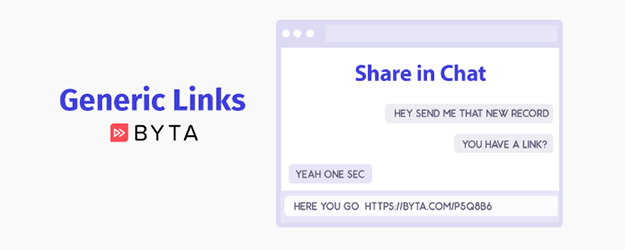
During all the chit and the chat about the possible collapse of SoundCloud prior to it securing a new round of funding earlier this month, some people noted that the service remains particularly popular among opinion formers in the music industry and the music media. Many said opinion formers like getting pre-release music via a SoundCloud private link, because then linking through to the track is super-easy, and bookers, programmers, journalists and DJs can easily share the link with other colleagues.
Pre-release promo platform Byta yesterday announced a new ‘Generic Links’ feature that aims to bring that kind of flexibility to its service. It means artists and labels sharing new music with key opinion formers over its platform – whatever the format being shared – can now send generic links via email or messaging apps that are easy to use and which recipients can then share with any colleagues who also have Byta accounts.
Byta says Generic Links is “a new step forward in private links”, adding that “now everyone from the smallest of artists to the biggest companies in the world can create Generic Links, easily shareable in email or via messaging services like iMessage, Facebook Messenger and Skype”. Meanwhile founder Marc Brown added: “No matter what’s being shared – mixes direct from the studio or albums requiring the tightest security possible – they all come in one simple shareable link”.
READ MORE ABOUT: Byta
Tuesday 22 August 2017, 11:49 | By Chris Cooke
SEC met with Spotify to discuss its unconventional route to the stock market
Business News Digital

US finance regulator the Securities And Exchange Commission last month met with Spotify executives to discuss the streaming firm’s plans for a direct listing on the New York Stock Exchange, according to Bloomberg.
As previously reported, Spotify is expected to become a publicly listed company via the somewhat unusual direct listing approach, rather than pursuing a more conventional new-cash-raising Initial Public Offering. It would mean existing shares in the digital music business could be traded on the New York Stock Exchange, but there would be no big new share sale at the point of listing.
Spotify needs to go public sooner rather than later because of the way it structured past loan arrangements, but the firm presumably doesn’t want to dilute its existing shareholders’ stock by issuing a load more shares. Arguably a direct listing is less risky in PR terms, and less expensive when it comes to admin costs, than a conventional IPO, though it does mean the company starts to receive the scrutiny of being a public company – with obligations to report financials once a quarter – without getting a nice big pile of cash at the outset.
Sources say that it was the SEC who requested the meeting and that conversations between Spotify execs and the regulator continue. It is very likely that the SEC wants more time to scrutinise Spotify’s plans simply because it is going with an unconventional approach.
Elsewhere in Spotify shares chatter, which is definitely a thing, Sky News reports that a Goldman Sachs hedge fund has quietly sold off a bunch of its shares in the streaming music firm. Its thought that the private transaction saw Goldman Sachs Investment Partners sell over $75 million of its Spotify stock, though that accounts for less than half of the fund’s stake in the digital music firm.
Goldman Sachs is actually one of the banks advising Spotify on its direct listing, alongside Allen Co and Morgan Stanley. So that’s all fun, isn’t it. Did I mention Spotify has just gone live in Thailand? No? Oh, well, take note please: Spotify has just gone live in Thailand.
READ MORE ABOUT: Goldman Sachs | Spotify | US Securities & Exchange Commission
Tuesday 22 August 2017, 11:46 | By Chris Cooke
BPI boss responds to Lyor Cohen’s safe harbour remarks
Business News Digital Labels & Publishers Legal
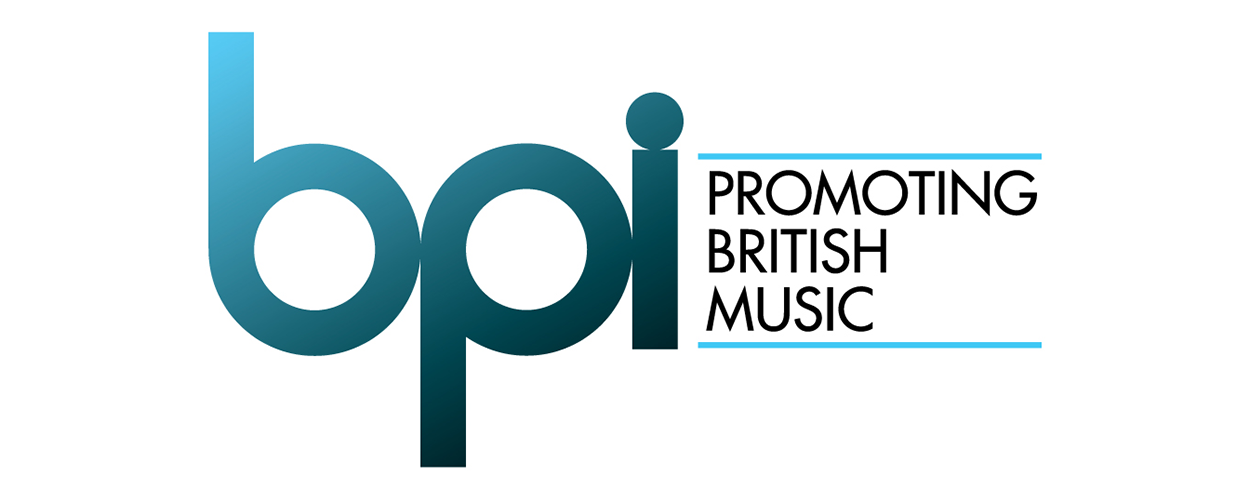
BPI boss Geoff Taylor has followed the lead of his American counterpart at the RIAA and responded to Lyor Cohen’s blog post from last week in which he bigged up the role of YouTube in the music industry’s digital future, and played down the significance of the big bad safe harbours.
As previously reported, record industry veteran Cohen – appointed to lead music operations at YouTube nearly a year ago – defended his current employer in the blog post on Friday. YouTube, of course, has become enemy number one for many in the music community in recent years, with record labels and music publishers arguing that the Google firm exploits the copyright safe harbour to secure unfair terms in its licensing deals with music rights owners. To that end, said labels and publishers want safe harbour rules in copyright law rewritten so that services like YouTube no longer qualify for protection.
Cohen argued that the safe harbour is one big distraction, and that the music industry should instead focus on the growth of YouTube advertising sales and its Red subscription service – and the new monies both can generate for the music industry. Plus, he insisted, YouTube remains a valuable marketing channel for new music, and his team is busy further enhancing the promo tools the platform offers artists and their business partners.
The boss of the Recording Industry Association Of America, Cary Sherman, was quick to respond with his own blog post denying safe harbour was a distraction, questioning Cohen’s optimism about the potential for a future boom in YouTube royalties, and disputing some of Cohen’s figures regarding what YouTube is currently paying to the music community. Yesterday the CEO of UK record industry group BPI, Geoff Taylor, echoed the many of those sentiments.
“Lyor Cohen argues that YouTube’s advertising business is growing rapidly”, Taylor wrote in a new blog post, “paying out more per stream than other ad-supported services, and is now joined by a subscription business that together will drive the industry to ‘a more lucrative place than ever before’. He praises the role of YouTube in breaking new artists and argues that safe harbours allow platforms like YouTube to give a voice to millions of artists, making the industry more competitive and vibrant”
“Sounds good, right?” Taylor continues, before adding “but from a UK perspective, this ignores a few inconvenient truths. Contrary to his claims, in the UK, at least, there is little if any growth in advertising revenues from YouTube. Ad supported revenues from video streaming grew by just 0.4 per cent for UK labels last year, despite rapid growth in use of the platform”.
Noting that the YouTube Red subscription service is yet to launch in the UK, Taylor also points out that the video platform does little to upsell the streaming service parent company Google does operate in the UK, ie the Google Play streaming set-up. “YouTube isn’t helping to grow our subscriptions business”, he says, “it’s undermining it. According to research from IPSOS, one in five internet users say they don’t pay for music because they get all the music they need from YouTube”.
But what about all that free promo YouTube offers, hey Geoff? “YouTube isn’t such a great music discovery service as it might like to believe”, he reckons. “Research from AudienceNet and from IPSOS shows that two thirds to three quarters of YouTube music users use the service mainly to listen to music that they already know”.
So what does that mean? Well, says the BPI boss, “rather than empowering the artist community, as Lyor argues, safe harbours take away an artist’s freedom to choose. Artists aren’t given the opportunity to decide whether they want their music to appear on the platform, or at what price. For most artists, the only option is to accept pitiful compensation for the use of their work, at a rate dictated by YouTube – since effectively blocking use of their work using the Content ID tool (if it’s even available to them) is not realistic”.
Content ID, of course, is YouTube’s rights management tool that helps labels and publishers manage their content on the platform, in particular when their music appears in videos uploaded by third parties. It’s a pretty damn good tool, but – some in the music community say – not as damn good as YouTube claims. And although individual artists can monetise their own videos by becoming a YouTube content partner – which is very easy to do these days – they will usually have to ally with a music distributor to access Content ID.
“Safe harbours are hardly ‘a distraction’ in the relationship between YouTube and the music industry”, Taylor continues. “If the music industry is getting paid around one twentieth as much as it should by one of the biggest users of music on the planet, that’s a reasonable thing to obsess about”.
“The simple way for YouTube to fix its disconnect with the music industry”, he says, “is to confirm publicly that it does not qualify for safe harbour protection for music content, because it does not play a merely neutral, passive and technical role. This should be uncontroversial, given Lyor’s claim that most music watch-time on the platform comes from a YouTube recommendation”.
Like Sherman at the RIAA, Taylor adds that he believes former record industry man Cohen has good motives, but – he adds – the music industry trade bodies who are busy lobbying for safe harbour reform haven’t seen a shift in attitude higher up the command chain at YouTube and the wider Google/Alphabet business.
“I believe that Lyor Cohen sincerely wants YouTube to be a positive force for music”, Taylor concludes, “[But] that’s going to take more than words. It’s going to take a fundamental shift in YouTube’s business practices so that it pays for the music it uses at a level similar to competing services”.
“It can afford to do so”, Taylor adds. “Alphabet, YouTube’s parent company, is on course for revenues of $100 billion this year. That’s bigger than the GDP of Croatia and Slovenia combined (according to the IMF). If Lyor can persuade the powers at Google to make such a change, he will be a hero to even more people in music”.
READ MORE ABOUT: British Phonographic Industry (BPI) | Geoff Taylor | Lyor Cohen | YouTube
Tuesday 22 August 2017, 11:40 | By Chris Cooke
ITV announces new music show with Syco
Business News Media

With the BBC recently announcing its new regular music programme and a one-off Harry Styles special, ITV has bounced back with its own music brag in the form of a new show called ‘Your Song’, a sort of ‘CD:UK’ meets ‘Surprise Surprise’. Don’t worry, it’s only a one off special. For now at least.
Emma Willis will host the programme, which will see “real people who have done something extraordinary” (so bad news for fans of fictional people who do things that are ordinary) personally serenaded by a pop star. A pop star the extraordinary real person likes I should add. Providing the researchers on ‘Your Song’ do their job properly.
The show is being made by ITV’s frequent partners on musical television, Simon Cowell’s Sony Music unit Syco and telly making giant FremantleMedia. The one-off will air this autumn. Long-term plans for the format aren’t known, though you suspect that if the special is a hit with viewers a proper series could be commissioned.
Say’s Syco’s telly chief Nigel Hall: “‘Your Song’ is an extremely exciting project that we have been developing for some time. We are now delighted it is coming to fruition. And we are sure it will bring surprise, entertainment and emotion to everyone at home. We all have that special song which means the world to us – and it will be really exciting to see superstars perform them for their biggest fans”.
Adds presenter Willis: “This is such an amazing show to be part of… imagine seeing somebody you love, and who is so deserving, being surprised with the performance of a lifetime by their musical hero!” Are you imagining it? Well, are you? Are there tears, hugs and happiness in your imagined scenario? That’s what Willis is imagining. “I think there’ll be plenty of tears, hugs and happiness!” says she. Marvelous.
READ MORE ABOUT: Emma Willis | ITV | Syco
Tuesday 22 August 2017, 11:36 | By Chris Cooke
CMU’s One Liners: Venues Day, King Krule, Gary Numan, more
Artist News Awards Business News Education & Events Releases

Other notable announcements and developments today…
• The Music Venue Trust has announced the addition of a new strand to its Venues Day event called Venue Futures, which will be curated by Deviate Digital’s Sammy Andrews. The strand will give “tech companies, digital marketing companies and start-ups the chance to connect with independent venues from all over the UK”. Venues Day is 17 Oct. Companies interested in taking part in Venue Futures should email info@deviate.digital by 4 Sep.
• The final speakers have been announced for the London edition of the FastForward music industry event, with Ticketmaster’s Sophie Crosby, Sony Music’s Dusko Justic and Sony/ATV’s Miranda Kempin among the latest additions to the line up. The Association Of Independent Music is also offering five emerging labels the chance to win free tickets to the conference. FastForward London is on 15 Sep.
• The other band members have been cast in the long-in-development Queen biopic that is finally in production. Ben Hardy will play Roger Tayor, Gwilym Lee will play Brian May and Joe Mazzello will play John Deacon. As previously reported, Rami Melk is on board to play Freddie Mercury.
• King Krule has posted a one-minute teaser video featuring new music onto the Facebooks. How very modern.
• New Gary Numan track everybody! ‘And It All Began With You’ comes from Numan’s 22nd album ‘Savage (Songs From A Broken World)’, which is out on 15 Sep via BMG.
• Here’s the video for latest Ride single ‘Cali’. It’s described as a “psychedelic surf video” and a “kaleidoscopic video”. So that’s fun.
• Liam Payne, Rita Ora, The Vamps, Camila Cabello and Dua Lipa will all perform at BBC Radio 1’s Teen Awards 2017 at Wembley Arena on 22 Oct. Excited? No? Are you a ‘teen’? Then fuck off then. Assuming you said “no” to that last question. This one liner only really works if you said “no” to that last question.
READ MORE ABOUT: BBC Radio 1 | Deviate Digital | FastForward | Gary Numan | King Krule | Music Venue Trust | Queen | Ride | Venues Day
Tuesday 22 August 2017, 11:32 | By Chris Cooke
Bonnie Tyler sang ‘Total Eclipse’ during a total eclipse
And Finally Artist News
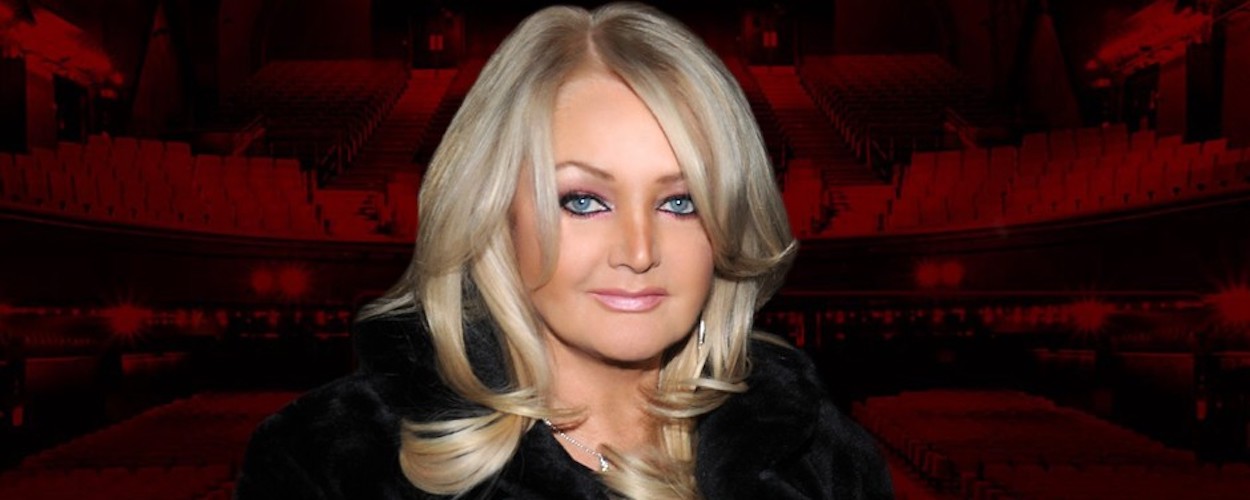
So, I’m in Jamaica at the moment and I can confirm that the solar eclipse this far south was a whole lot less impressive than the solar eclipse website I consulted suggested it was going to be.
I mean, it was never going to be a total eclipse down here, but I was hoping for a bit more than just having to trust the locals that the sun wasn’t quite as bright as you’d normally expect for 2pm in the afternoon.
But, further north – across parts of the USA and its coastline – the sun was indeed totally eclipsed. Want to see Bonnie Tyler sing ‘Total Eclipse Of The Heart’ during the moment of daytime darkness with Joe Jonas’s band DNCE? Of course you do. Here it is…
As previously reported, Tyler was booked to perform her pop rock classic during the eclipse by a cruise company, which was parking its ship in the path of totality. Said cruise company has now posted some clips of that performance online.
True, it does kinda look like Tyler is just singing her hit on a cloudy day, but you do get to see some people wearing silly glasses staring into the sky, so swings and roundabouts I guess.
READ MORE ABOUT: Bonnie Tyler
Monday 21 August 2017, 11:13 | By Chris Cooke
RIAA hits back at Lyor Cohen’s “safe harbours are a distraction” blog post
Business News Digital Labels & Publishers Legal

The Recording Industry Association Of America took to the internets on Friday to bounce back some arguments at YouTube’s music chief – your main man Lyor Cohen – after he tried to paint a rosy picture of the role the Google-owned video platform is playing in the digital future of the music business.
YouTube, of course, has been the music industry’s enemy number one for sometime now, with the copyright safe harbour the video platform exploits topping the piracy gripe list of record companies and music publishers, ahead of actual music piracy.
As much previously discussed, the music industry argues that YouTube exploits the safe harbour to force music rights owners into much more preferential deals than those enjoyed by the likes of Spotify and Apple Music. Even though, as a provider of free music streams, YouTube arguably competes head on with the specialist music streaming platforms.
To that end the music industry wants safe harbour rules rewritten, so services like YouTube no longer enjoy protection. And while that’s not going to happen Stateside anytime soon, despite a specific US Copyright Office review of the safe harbour, in Europe copyright law is being revised with digital matters in mind and the music industry hopes to get workable safe harbour reform into the new European Copyright Directive.
But the whole safe harbour hoo haa is a big fat distraction, Cohen wrote in his previously reported blog post last week. What the music business should really be focusing on is the money it could earn from the growth of the YouTube Red subscription service, the potential to share in ever increasing amounts of YouTube advertising money, and all the new marketing tools Cohen’s team are working on providing to artists and labels.
It seemed unlikely that the blog-tastic musings of record industry veteran Cohen were likely to do much to placate the YouTube-haters amongst his former colleagues, and the RIAA confirmed that was the case by return mail.
“We are pleased that Lyor Cohen says he is making it his mission to direct some of YouTube’s revenues back to the music creators who drive its success”, the trade group’s boss man Cary Sherman wrote on Friday. “His optimism is encouraging. But to be honest, we’ve heard pretty much the same claims and arguments from YouTube before. So while Lyor’s heart may be in the right place, the numbers and YouTube’s actions tell a different story”.
The problem? Sherman charges that: “Google’s YouTube is the world’s biggest on-demand music service, with more than 1.5 billion logged-in monthly users. But it exploits a ‘safe harbour’ in the law that was never intended for it, to avoid paying music creators fairly. This not only hurts musicians, it also jeopardises music’s fragile recovery and gives YouTube an unfair competitive advantage that harms the digital marketplace and innovation”.
Expanding on his claim that the copyright safe harbour was never intended for services like YouTube, Sherman then uses one of Cohen’s own arguments against him. The YouTube music chief bragged about how his platform’s users often found music to listen to via the recommendations the service provides, proof of the role the Google site plays in music discovery. But that’s also proof, Sherman reckons, that YouTube is a far way from the kind of passive intermediary internet service that the safe harbour was designed to benefit.
Writes Sherman: “The safe harbour was intended to protect passive internet platforms with no knowledge of what its users are doing, not active music distributors like YouTube. As Lyor acknowledges in his blog, ‘the majority of music…is coming from recommendations, rather than people searching for what they want to listen to'”.
The RIAA boss then disputes Cohen’s figures. “About 400 digital services have been licensed around the world, many with ad-supported features”, he says, responding to Cohen’s claims about YouTube’s payout on free streams. “Comparatively, YouTube pays music creators far less than those services on both a per-stream and per-user basis, and nowhere near the $3 per thousand streams in the US that Lyor claims”.
He goes on: “Last year’s actual payout per 1000 streams was closer to half that amount, according to industry data and Nielsen and BuzzAngle estimates, and seven times less than Spotify, which also is both an ad-supported and subscription service”.
Noting Cohen’s argument that the averaging out of income across territories can skew the figures somewhat, so that they look less impressive, Sherman continues: “Lyor points to ‘developing markets’ outside the US to explain why YouTube isn’t paying enough [over all]. But YouTube’s monetisation in developed countries, such as some of the biggest markets in Europe, is nothing to brag about”.
Cohen added that confusion over what rates are actually being paid by different digital services in different markets was down to the general lack of transparency in the streaming market. That excuse – aimed at artists more than labels – capitalises on what is something of an Achilles heel for the secretive major record companies that the RIAA represents: ie their continued unwillingness to let artists and managers see the inner workings of the streaming business so to better explain the royalties they receive.
But it’s Google that needs to be more transparent, Sherman reckons. “YouTube likes to talk a good game, but it won’t even make public its subscriber figures”, he argues. “And it continues to underreport the number of music streams played on its service, let alone substantiate any of its many different claims about payments to music creators. In fact, every time they’re challenged on this point, Google and YouTube simply change their claims yet again”.
So, to conclude, Cohen – brought in by Google to try and build bridges to the many YouTube-dissers and safe harbour reformers in the music industry – still has plenty of bridge construction work ahead of him
Sherman adds: “It’s long past time that the safe harbours – enacted 20 years ago, in the days of dial-up internet, and before it was ever imagined that users could upload 400 hours of video to YouTube every minute – must be clarified to apply to passive and not active intermediaries”.
“To be clear”, he goes on, “we believe safe harbours should be preserved – and Google/YouTube claims that we’re trying to eliminate them is nothing but a red herring. But if safe harbours are to drive innovation and fair competition in today’s digital environment, they must be applied as originally intended, not as they are exploited by YouTube for its own competitive advantage”.
READ MORE ABOUT: Lyor Cohen | Recording Industry Association Of America | YouTube




